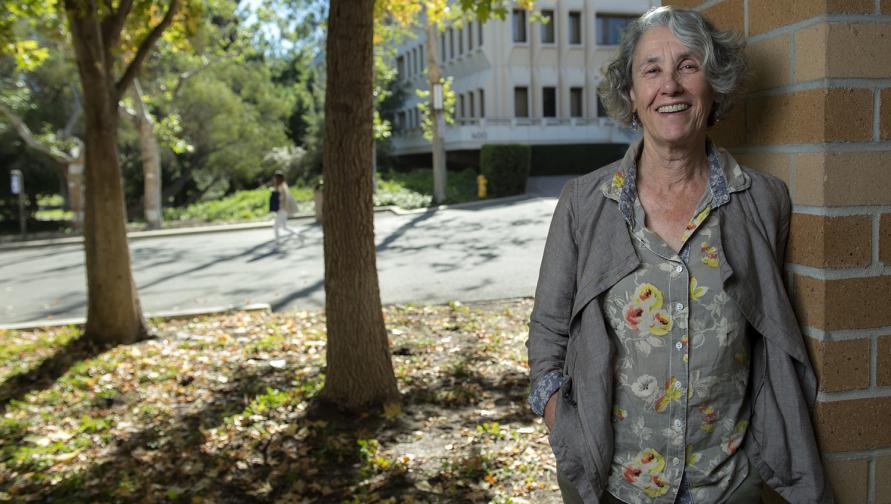
By Annabel Adams
Robert Love is the type of historical figure we don’t often hear about. He wasn’t a war hero; he didn’t write the law, break the law or protest the law. In fact, he was a strict rule-follower—a town bureaucrat whose job it was to traverse the ragged 18th-century streets of Boston by foot and let visitors know that they had two weeks to leave. Love’s warning ritual was part of an elaborate recording system meant to absolve the city of Boston of any potential financial liability or responsibility incurred by its visitors.
Written by Sharon V. Salinger, professor of history at UCI, and Cornelia H. Dayton, professor of history at the University of Connecticut, Robert Love's Warnings: Searching for Strangers in Colonial Boston (University of Penn Press, 2014), takes readers through pre-Revolutionary Boston with Robert Love as its tour guide.
What Love’s personality lacks in excitement and authority, he makes up for in his meticulous record keeping. Love left behind 4,000 warnings over a nine year period on the cusp of the American Revolution describing in detail those he warned. Using these records on Boston’s “strangers,” Salinger and Dayton recreate what life was like in Boston during Love’s tenure as town warner and challenge previously-held assumptions about early colonial sociopolitical policies.
The book has recently received two significant awards: the Organization of American Historians’ Merle Curti Award for the best book in American Social History, 2015 and the American Historical Association’s Littleton-Griswold Prize in US law and society, 2015.
"What Sharon Salinger and Cornelia Dayton accomplished with this book is quite remarkable,” said David Igler, chair of the UCI Department of History. “In the best tradition of American social history, they took an unknown person's records from more than 200 years ago and brought that individual to life for modern readers. In the process, Robert Love illustrates dimensions of colonial Boston right on the eve of the Revolution. We know of Boston as a place of anger and revolutionary struggle, but it was also a place of ordinary people like Robert Love working the streets for their jobs. Sharon and Cornelia have produced a superb new perspective on our colonial past.”
Below, I ask Salinger about the genesis of the book and what connections we can draw from it to the United States’ sociopolitical climate today.
How did you & Professor Cornelia Dayton happen upon Robert Love's records and what motivated you to read through his thousands of entries?
Our discovery of Robert Love’s records was akin to the historian’s dream. I was working on another project reading 18th-century diaries when I stumbled on a journal of Robert Love at the Massachusetts Historical Society mislabeled as a diary. I paused with what I was doing, wrote a paper based on his journal and sent it to Nina. We both recognized what a find this was and she persuaded me that it was worth a book. Finding these entries was the first time historians had seen the complete description of those warned. Previously, historians worked from lists compiled from these records containing only minimal information about the people warned.
How does this book challenge former depictions of early New Englanders?
Two main assumptions were changed: Warning Out had been interpreted as a harsh policy literally meaning that strangers could not stay in Boston. For each group warned, Love recited the lines that they had “fourteen days to depart the town.” However, it was an accounting system used to protect the Boston treasury. Residents who needed poor relief or who were admitted to the almshouse were supported financially by the town of Boston; funds to defray the costs of non-resident came from the coffers of the province of Massachusetts. So rather than exclusionary it is quite the opposite, a way for strangers to get poor relief should they need it while protecting citizens of Boston from having their tax dollars support non-residents. We also reversed a long-held assumption that the 4,000 plus people warned by Love came into Boston because they were poor. This was an understandable assumption because Robert Love’s instructions stated that he was to warn only “those in low circumstances.” What we found was that the vast majority of those who entered the port city were of the middling sort, not poor.
How does the 18th-century system of "warning out" compare to our current system of offering assistance to those in need?
This is a difficult question. Eighteenth-century Bostonians provided care to strangers. We seem to no longer be that caring.
To purchase a copy of Robert Love's Warnings: Searching for Strangers in Colonial Boston, click here.
To read the book’s prologue, click here.
Photo credit: Steve Zylius, UCI
